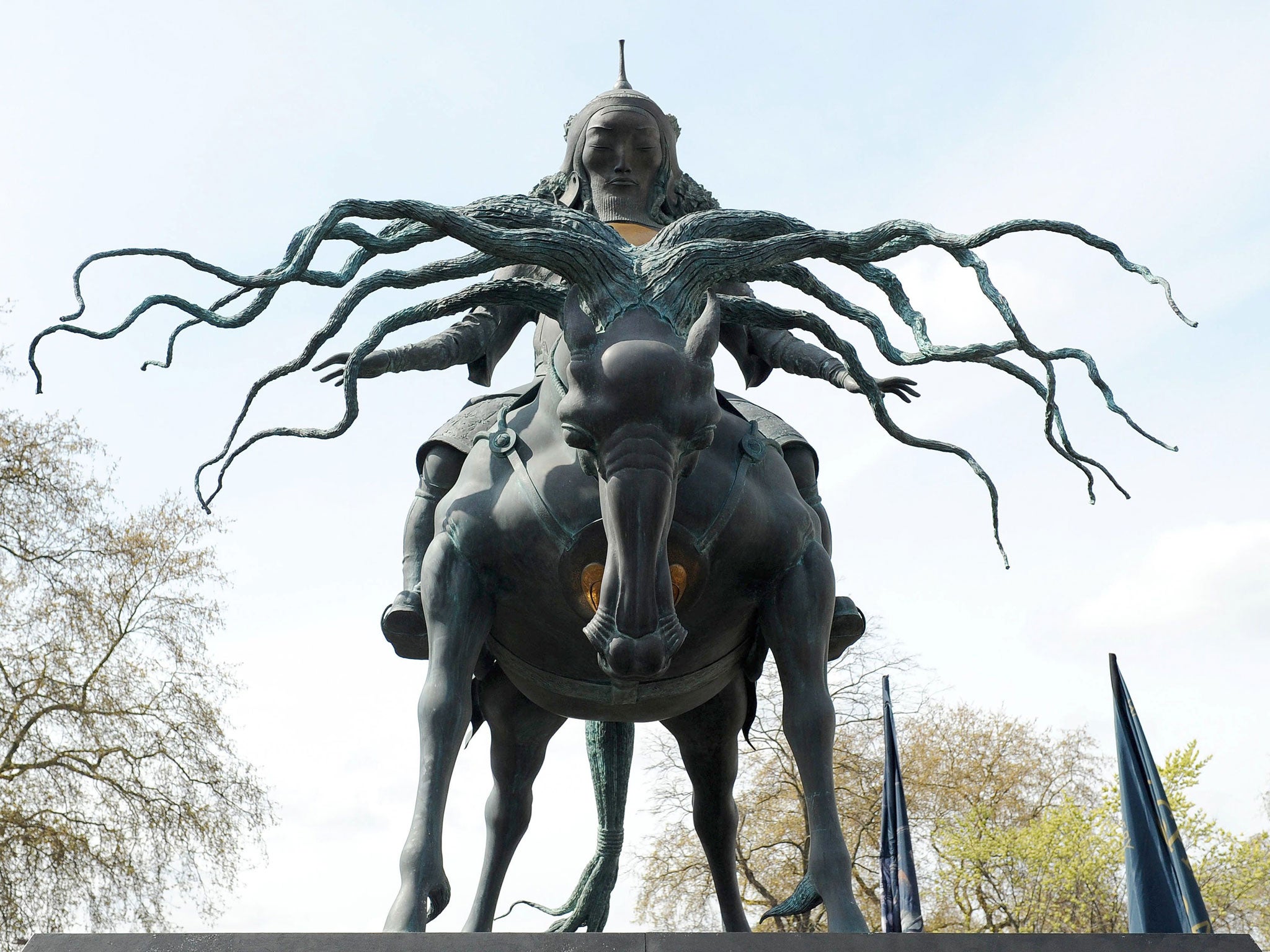How climate change helped Genghis Khan: Scientists believe a sudden period of warmer weather allowed the Mongols to invade with such success

A long period of warm, wet weather spanning several decades helped one of history’s most fearsome tyrants to conquer most of Asia and Eastern Europe and form the largest continuous land empire the world has known, a study has found.
Genghis Khan owes his place in history to a sudden shift in the Asiatic climate from the cold, arid period that immediately preceded his ascent as leader of the Mongol empire, to the warmer, wetter weather that allowed his horsemen to expand out from Central Asia.
Scientists studying ancient Siberia pine trees in central Mongolia that date back nearly 2,000 years believe that Khan’s rise to power coincided precisely with a period of unusually heavy rainfall over a couple of decades which allowed the arid grasslands of the Asian Steppe to flourish.
Richer, more productive pastures for the herds of war horses on which the Mongols depended for their nomadic lifestyle helped Khan’s invading armies to take territory as far east as China, as far south as Afghanistan and as far west as Russia and Hungary, the researchers said.
Tree rings, which record periods of good and bad plant growth, show that the years from about 1180 to 1190, which immediately preceded Genghis Khan’s rule, suffered an intense drought that probably stoked the political turbulence that helped him to come to power.
After this period, the tree rings show a period between 1211 and 1225 of sustained rainfall and mild weather which coincided precisely with the meteoric rise of Khan’s empire, said Amy Hessl a tree ring expert at West Virginia University.
“The transition from extreme drought to extreme moisture right then strongly suggests that climate played a role in human events. It wasn’t the only thing, but it must have created the ideal conditions for a charismatic leader to emerge out of the chaos, develop an army and concentrate power,” Dr Hessl said.
“Where it’s arid, unusual moisture creates unusual plant productivity, and that translates into horsepower. Genghis was literally able to ride that wave,” she said.
The tree rings show that the normally cold, arid steppes of central Asia experienced their mildest, wettest weather in more than 1,000 years at the time when Genghis rose to power and established his enormous land empire with the help of his sons.
A study of the rings, published in the journal Proceedings of the National Academy of Sciences, shows that the climate soon reverted to its cold, dry state, which led to droughts and lower grassland productivity.
The tree rings also show a disturbing modern trend. Since the mid-20th Century, the region has warmed rapidly and the drought years recently have been more extreme than at any time in the tree-ring record, said Neil Pederson, a tree-ring scientist at Columbia University’s Lamont-Doherty Earth Observatory, who led the study.
Each Mongolian horseman in Genghis’s army is said to have had up to five horses, which provided a supply of meat as well as transport. Higher grass yields would have also caused a boom in camels, yaks, cattle, sheep and other livestock, Dr Pederson said.
“The weather may literally have supplied the Mongols with the horsepower they needed to do what they did… Before fossil fuels, grass and ingenuity were the fuels for the Mongols and the cultures around them,” he said.
“Energy flows from the bottom of an ecosystem, up the ladder to human society. Even today, many people in Mongolia live just like their ancestors did. But in the future, they may face serious conditions,” he added.
Genghis Khan died in 1227 but his sons and grandsons continued to conquer more territory and eventually controlled what became modern Korea, China, Russia, eastern Europe, southeast Asia, Persia, India and the Middle East – before the empire began to fragment.
Join our commenting forum
Join thought-provoking conversations, follow other Independent readers and see their replies
Comments